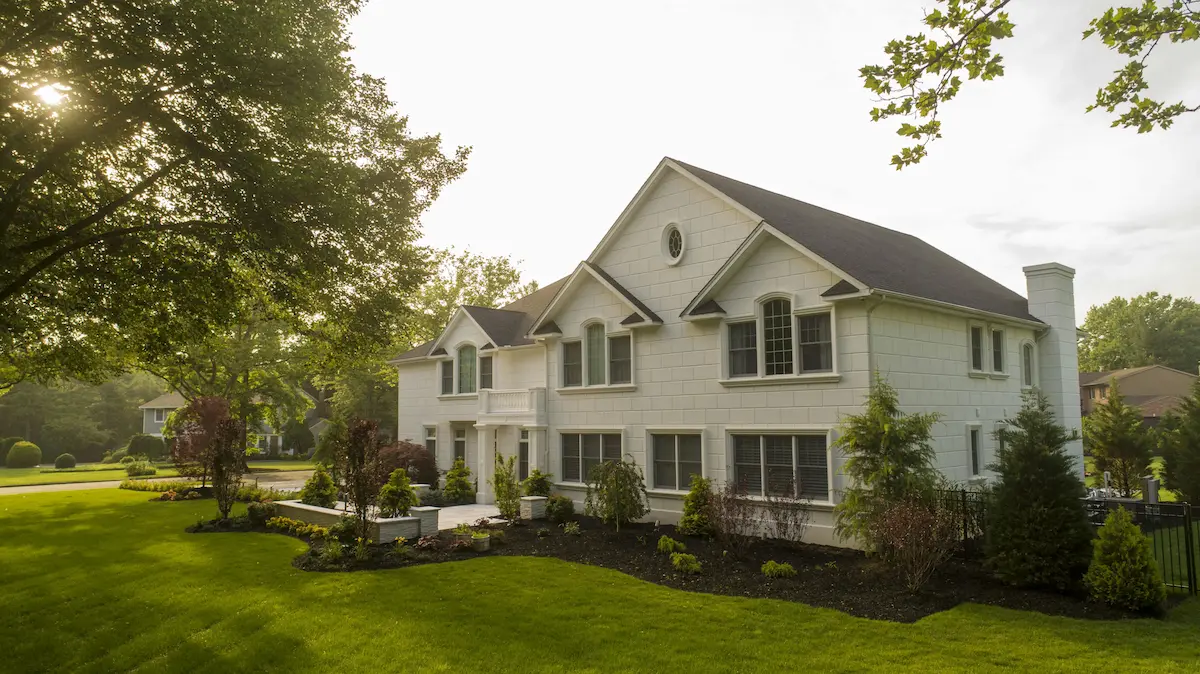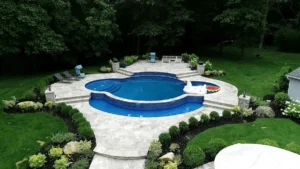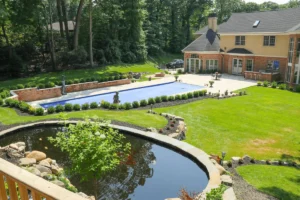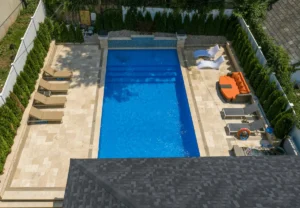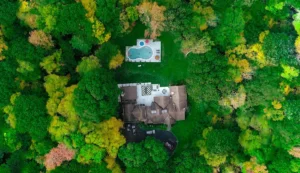It’s essential to understand which cases it’s necessary to obtain a paving permit. This question is a bit more complicated to answer as it depends significantly on your town or city’s ordinances. In many communities, you need to obtain a permit from the planning department to build paved areas on the house’s exterior.
Unincorporated towns are generally governed by a county permitting authority where codes aren’t as strict. In areas where there are environmental issues, protected aquifers, or special drainage restrictions, you’ll likely be required to submit a plan review, and a permit will need to be issued.
Although laws vary significantly throughout the United States, most municipalities deem it okay to pave without a permit if:
The surface of a patio or walkway isn’t more than 30 inches above grade
The surface of a concrete driveway or walk isn’t more than 18 inches above grade
Width is restricted to 18 feet (turnarounds are an exception to this rule)
The paved area isn’t being laid directly over a basement or other lower floor
A wall or fence measures between 2.5 to 6 feet (other factors such as soil type, property line, and climate may affect the requirements in this case)
A slab foundation for a shed, gazebo, greenhouse, or other outbuilding doesn’t exceed 120 square feet
In many cases, parking pads are illegal, so check with your regional authority if you’re planning on making one
Even if you meet the criteria above, don’t skip out on looking into the process as every town’s local building authority has its own rules that apply. Suppose you go ahead and build without knowing that you’re violating a code. In that case, you could end up with fines, a citation, retroactive permit costs, and even have difficulty insuring, financing, or selling your home Rules for Paving.
Besides checking your town’s ordinances, you must also check with your homeowner’s association if you’re part of one. Many homeowner’s associations have bylaws concerning such projects.
The Best Types of Pavers for Outdoors
Pavers come in slabs and blocks and are made from various materials, including concrete, brick (clay), travertine, marble, porcelain, flagstone, and even rubber. You can use them to create walkways, driveways, patios, pool decks, and other areas around a home’s exterior. You can choose to lay slabs or use interlocking pavers for an eye-catching design.
When choosing a type of paver for your project, you’ll want to consider factors such as color, sheen, price, availability, porousness, and others. Here’s a rundown of some of the most popular paver types and for which jobs they’re best suited.
Brick
Brick is made of molded clay. It’s been used as a popular surfacing material for centuries due to its durability and classic look. Bricks allow for a range of patterns and color combinations and are an ideal alternative to concrete. They’re also an eco-friendly alternative as they’re made from natural materials. They should be laid on a high-quality mortar or sand base during installation. Brick is a porous surface that absorbs moisture quickly.
Cobblestone
Cobblestone is most commonly made of basalt, sandstone, limestone, or granite. Like brick, cobblestone pavers have been used for centuries due to their durability and attractive aesthetic. These pavers require very little maintenance and can remain stable for decades as long as they’re correctly installed. Installation can be time-consuming, and cobblestone is one of the more expensive options. Still, many people find it worth the extra time and money for its low maintenance and excellent durability. When cobblestone is set in sand, it’s a highly porous paving option.
Concrete Pavers
Concrete pavers are one of the most popular options for outdoor paving. One of the best things about concrete pavers is that they come in an array of sizes, colors, textures, and thicknesses, so you can customize them any way you want. It’s also a low-cost option that’s more durable than poured concrete, but it requires a lot of maintenance and is prone to cracking under extreme temperature changes. Concrete is a porous paving option.
Flagstone
Flagstone is a flat and smooth sedimentary rock. It comes in a wide range of colors, sizes, and shapes, making it a versatile landscaping option. Each piece has a unique shape, and they fit together like a puzzle. Its non-slip texture and durability make it perfect for flooring, but it’s much thinner than brick and concrete, so it isn’t suitable for driveways or other areas that will have heavy traffic. It’s ideal for gardens and patios. As flagstone is mined and transported straight from its natural source, it tends to have a slightly higher cost than other pavers. Flagstone is a highly porous paving option.
Marble
Marble is classically known for its elegant and luxurious appeal. Their smooth polished finish provides a more sophisticated look than most other pavers can achieve. Each piece is unique, so it creates an eye-catching look. Marble also adds value to the home and makes it more marketable. While marble is a durable natural stone, it requires a lot of maintenance. It also conducts heat and is prone to scratches and stains. While marble is a porous stone, water, and other liquid can cause it to darken or stain.
Travertine
Travertine pavers are like marble in many ways. They’re made of a unique natural stone that provides versatility and can make a space look more elegant and sophisticated. It’s more durable and easier to source than marble, and they’re a more environmentally-friendly option. Travertine pavers are also naturally insulated, so they don’t get as hot as marble and some other pavers. Travertine is a very heavy stone, and it’s highly susceptible to acids, so you need to take care not to clean it with acidic formulas or vinegar as it will leave a stain.

